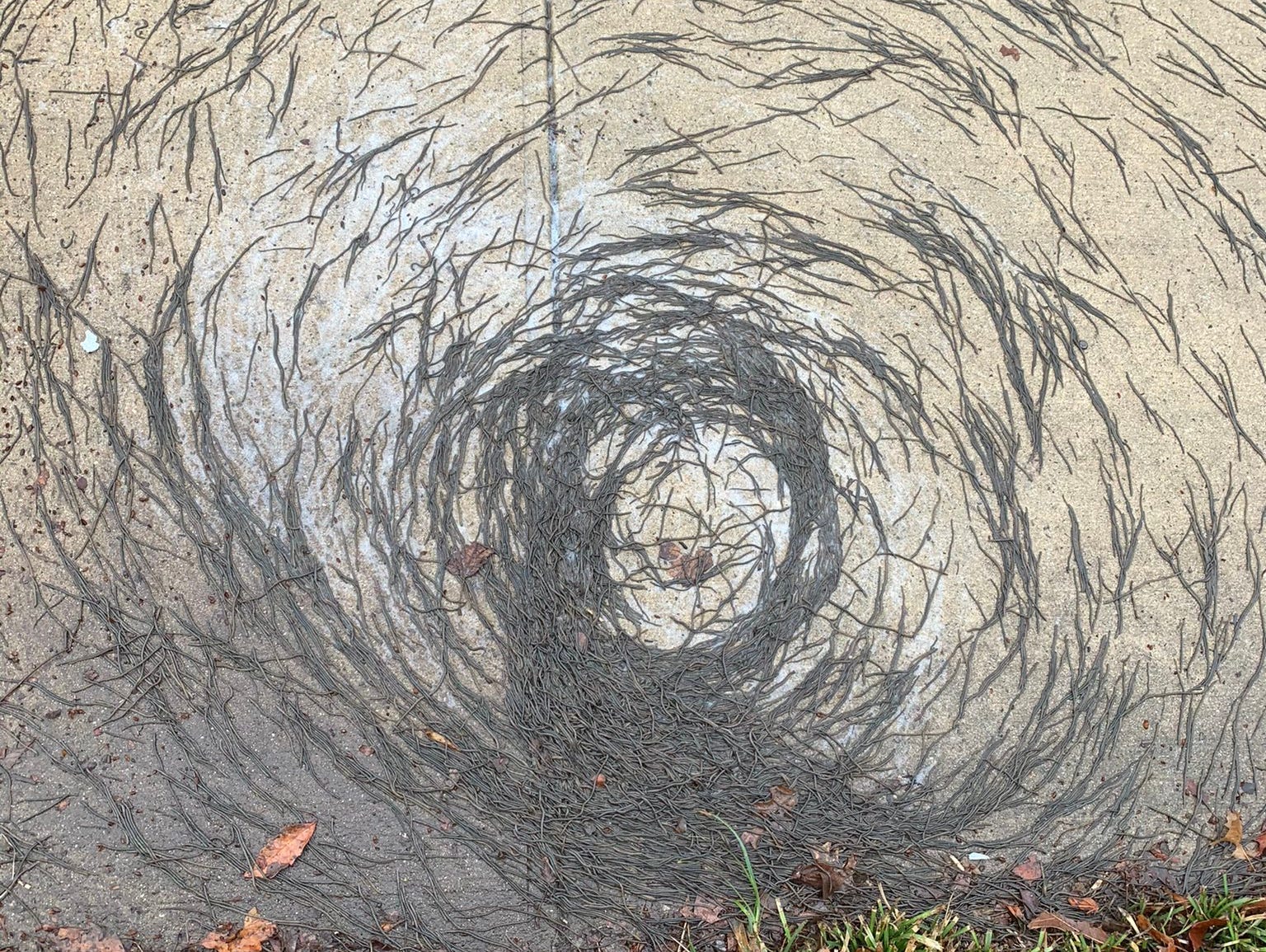
Tiffanie Fisher
- A spiral of worms was found on a sidewalk in Hoboken, New Jersey.
- Locals are now referring to the phenomenon as a "wormnado" or "worm tornado."
- Scientists are puzzled by the formation.
- See more stories on Insider's business page.
A New Jersey resident stumbled upon a bizarre formation of worms while taking a morning walk last Thursday, LiveScience first reported.
Hundreds of worms formed a tornado-like shape on the surface of a sidewalk in Hoboken, New Jersey.
Tiffanie Fisher, a local councilperson, shared the images to her social media.
"This is something I've never seen," she wrote on both her Facebook and Twitter.
Read more: Here are 10 companies hoping to cash in on the boom in edible worms and crickets
The images of what is now being called a "wormnado," or worm tornado, horrified locals.
-Tiffanie Fisher, Councilwoman (@Tiffanie_Fisher) March 25, 2021
"Looks like a portal out of a horror movie," one commented on Facebook.
"Clearly a sign of the end of days," wrote another.
Others expressed curiosity over what might have caused the intriguing formation.
Kevin Butt, a soil ecology expert at the University of Central Lancashire, said that he believes it can be attributed to a combination of heavy rain and the sidewalks being a hard surface.
"In short, worms have likely come to the soil surface due to excess rainwater, have been unable to burrow down due to movement on to a hard surface and the shape seen may well be a function of the water draining away, rather than specific behavior of the earthworms," Butt told Insider.
Kyungsoo Yoo, a professor at the University of Minnesota's Department of Soil, Water, and Climate, agrees that it is possible that worms might have come to the surface due to rainfall.
Yoo also suggested that vibrations, potentially from moles burrowing, could have caused the creatures' emergence.
The tornado shape, however, is mysterious to him.
"I have never seen this behavior," Yoo wrote in an email. "This tornado shape is really interesting."
Rhonda Sherman, the director of the Compost Learning Lab at North Carolina State University, said that she doesn't believe there is enough information to explain the puzzling formation.
"Earthworms cluster together when there is an environmental threat," she told Insider. "Looking at the photo of the spiral of worms does not provide enough information about the environmental conditions that could be causing the worms to cluster together."
A few hours after the worm formation was spotted, it vanished. "The bulk of it was gone - I'm not sure where they went," the Hoboken resident told LiveScience.
And so, the mystery of the wormnado continues.